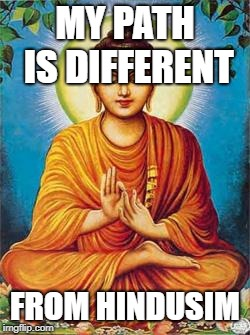 My kid went nuts when we couldn’t find his blue shorts. It had to be THOSE blue shorts. Both of my kids stayed up waaaaay too late. They looked ridiculous. So did I. I let them roam all over someone else’s neighborhood and talk to strangers who looked weird. They ate more sugar than their small bodies could handle and wound up literally running in circles to work some of the sugar out of their systems. Some neighbor had a scary movie playing on a projector on the outside wall and both my kids had nightmares. We went home at the obscene hour of nine o’clock, it was too late for baths, and the whole family was in tears by ten.
My kid went nuts when we couldn’t find his blue shorts. It had to be THOSE blue shorts. Both of my kids stayed up waaaaay too late. They looked ridiculous. So did I. I let them roam all over someone else’s neighborhood and talk to strangers who looked weird. They ate more sugar than their small bodies could handle and wound up literally running in circles to work some of the sugar out of their systems. Some neighbor had a scary movie playing on a projector on the outside wall and both my kids had nightmares. We went home at the obscene hour of nine o’clock, it was too late for baths, and the whole family was in tears by ten.
It was so much fun!!!!
“It” was, of course, Halloween.
 Context. It makes all the difference.
Context. It makes all the difference.
The difference between “#parentingfails” and “pretty average” is in the context. The question of Halloween or Regular Wednesday Night has a pretty big impact on your understanding.
 Context is an area where a lot of our kids struggle. We as teachers struggle with teaching context sometimes, too. It’s hard to tell the difference between context and content. What “stuff” about history or government or economics is the important “stuff” and which is just contextual “stuff”.
Context is an area where a lot of our kids struggle. We as teachers struggle with teaching context sometimes, too. It’s hard to tell the difference between context and content. What “stuff” about history or government or economics is the important “stuff” and which is just contextual “stuff”.
If you’ve ever showed your students a throwback Thursday picture, only to have them giggle and wonder at your hair or clothes, you know how important context is.
Context is JUST as important in social studies, too.
 The Constitution did not originally give every adult citizen the right to vote, of course. Originally, the states determined who could vote, often choosing only land-owning, white men over age 21, often about 6% of the population.
The Constitution did not originally give every adult citizen the right to vote, of course. Originally, the states determined who could vote, often choosing only land-owning, white men over age 21, often about 6% of the population.
The context behind that is a powerful piece of that understanding. The context of gender, race, power, money, and language in the original electorate was essential to understanding that limited enfranchisement
The beginnings of Buddhism as a reaction to Hinduism is a huge reason that Buddhism caught on in the first place. That context of a stratified Hindu society is what makes Buddhism stand out. It’s different. It’s a reaction to its historical context.
The Scientific Revolution is only a “revolution” in the context of the previously religious understanding of the universe.

Without context, it’s impossible to understand an “impact” or an “effect” -- because there has to be some context, some THING to be impacted or effected.
So, every single time we bust out a document in class, kids should use some context. There are plenty of ways to do this (APPARTS, Doc Analysis Sheets, etc.) but here are the questions that SHEG (Stanford History Education Group) asks us to use ...
If you’re looking for some quick prompts to practice contextualizing documents, SHEG gives us a few to start with:
Based on the background information, I understand this document differently because ...
The author might have been influenced by ___ (historical context).
This document might not give me the whole picture because...
 If you read last week’s WW email, you know we talked about Sourcing. Contextualization is interwoven with sourcing as we look at the people and circumstances around the CREATION of the document to inform our understanding.
If you read last week’s WW email, you know we talked about Sourcing. Contextualization is interwoven with sourcing as we look at the people and circumstances around the CREATION of the document to inform our understanding.
Again, this is not just a HISTORICAL Literacy Skill. It’s a Civic Literacy Skill. It’s a Citizenship Skill. It’s a Media Literacy Skill. It’s a Social Media Skill. It’s a Personal Relationship Skills.
It’s a life skill.
Looking at the context of a document is crucial to understanding it. We need to help our students use context when they read the news or a listen to a candidate or watch something online.
Let’s get them in the habit of asking those context questions every time they come across a document. I think it can be powerful in understanding history and current events.
 How do you ask your kids to contextualize? Do you do it frequently? How can you tuck in these questions every time you bust out a document?
How do you ask your kids to contextualize? Do you do it frequently? How can you tuck in these questions every time you bust out a document?
AS always, I love to hear from you. And Happy Halloween. Don’t let the Candy-Hangovers get you down tomorrow!
-Tracy